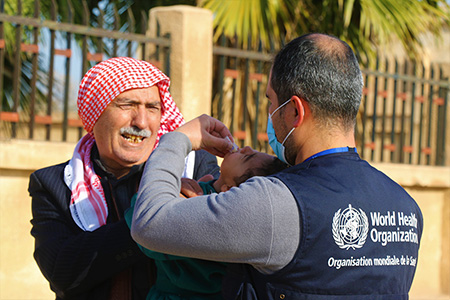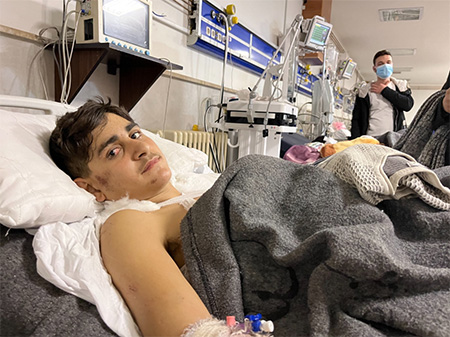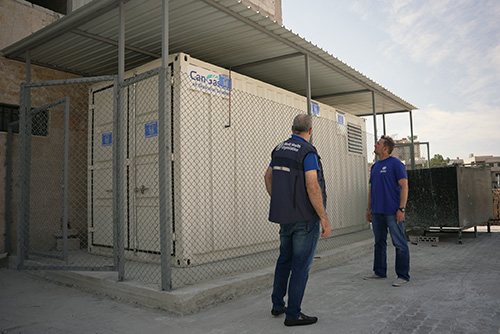 25 June 2023 – As part of its ongoing commitment to strengthen health systems in regions affected by crises, the World Health Organization (WHO), in collaboration with its donors, has delivered three oxygen generators to three public hospitals: Dara’a National Hospital, Homs National Hospital, and Dummar National Hospital in Damascus. Known as Pressure Swing Adsorption (PSA) plants, these oxygen generators will support the lives of hundreds of critical patients in Syria – such as those with cardiac and respiratory conditions, or those requiring intensive care – by ensuring reliable and economical on-site oxygen supply and facilitating the filling of oxygen cylinders.
25 June 2023 – As part of its ongoing commitment to strengthen health systems in regions affected by crises, the World Health Organization (WHO), in collaboration with its donors, has delivered three oxygen generators to three public hospitals: Dara’a National Hospital, Homs National Hospital, and Dummar National Hospital in Damascus. Known as Pressure Swing Adsorption (PSA) plants, these oxygen generators will support the lives of hundreds of critical patients in Syria – such as those with cardiac and respiratory conditions, or those requiring intensive care – by ensuring reliable and economical on-site oxygen supply and facilitating the filling of oxygen cylinders.
The deliveries of these oxygen generators are funded by the Middle East Response grant of the Global Fund to Syria, through IOM (UN Migration Agency) and WHO. Additional resources were mobilized through the COVID-19 Response Mechanism of the Global Fund, in partnership with the Ministry of Health. This collaborative effort aims to enhance public health and pandemic preparedness capacities in Syria for the long term.
Dr. Iman Shankiti, WHO's Acting Representative in Syria, said, "Working closely with the Ministry of Health, WHO is dedicated to bolstering the capacity of public health facilities across Syria. The provision of these oxygen plants to national hospitals is a testament to this commitment. Amidst the ongoing crisis in the country, our mission remains clear: to ensure access to quality healthcare services for those in need."
The three recipient national hospitals provide free public health services. Homs National Hospital, which includes two operating rooms, a twelve-bed inpatient ward, and four intensive care units (ICUs), has been equipped with an oxygen generator with a capacity of 20m3/h. Dara’a National Hospital, with 160 beds and 10 ICU beds, has also received an oxygen generator with a capacity of 40m3/h. Lastly, the Dummar National Hospital, planned to be an isolation hospital for communicable diseases and currently housing 30 beds and 18 ICU beds, now boasts an oxygen generator with an 18m3/h capacity. By leveraging the Pressure Swing Adsorption (PSA) process, these generators separate oxygen from other gases present in the air and mark a significant step towards strengthening Syria's healthcare system.
We recognize the national hospitals in Syria and their dedicated team of professionals for their unwavering service to their communities under ever-challenging conditions. It is essential that we continue to strengthen Syria's health system to ensure resilience and leave no one behind.





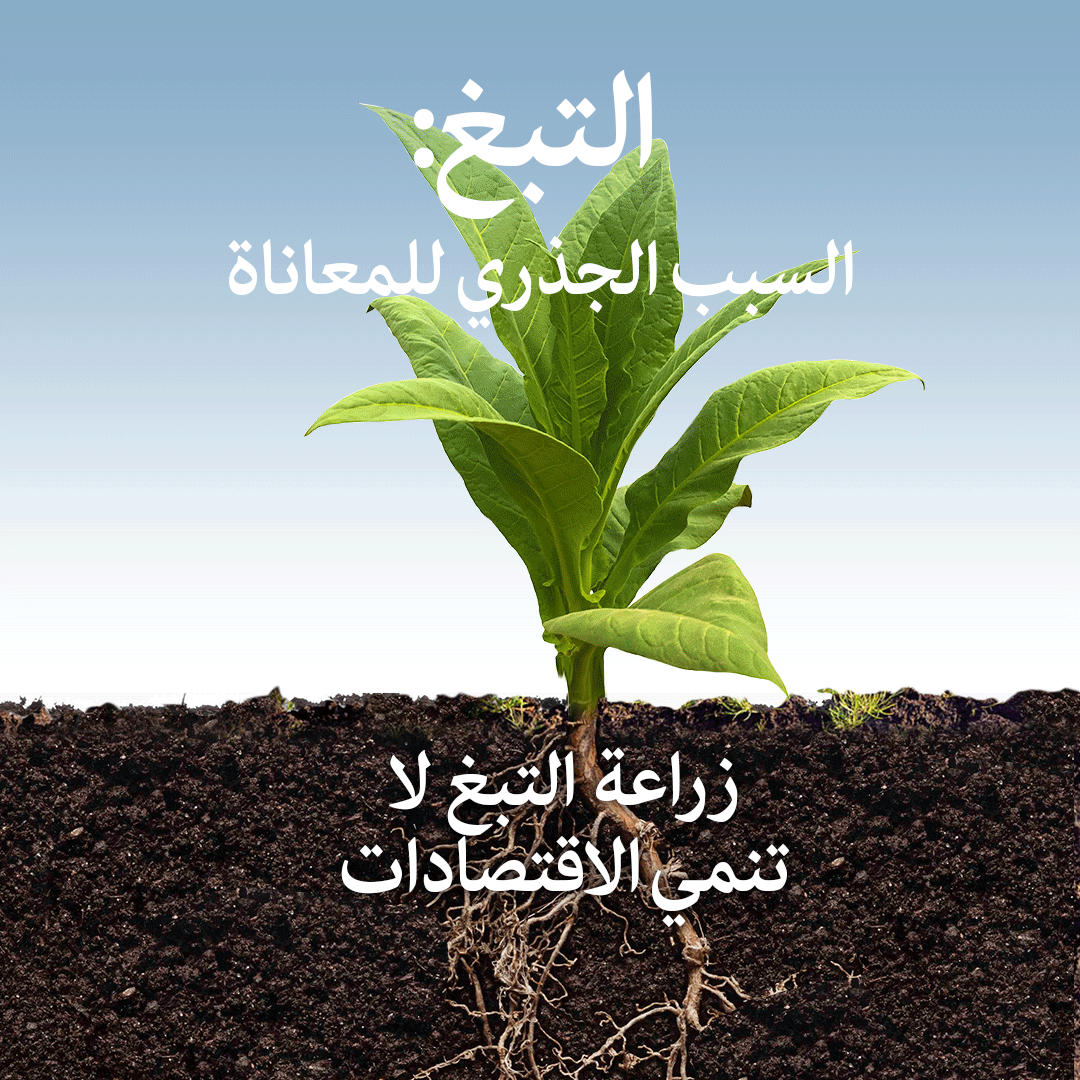 31 May 2023 – Damascus, Syria – Countries around the world, including Syria, are observing World No Tobacco Day, with a focus on the call for food, not tobacco. Syria's tobacco control program, led by the Ministry of Health in collaboration with the World Health Organization, aims to reduce the effects of tobacco cultivation on government and public health.
31 May 2023 – Damascus, Syria – Countries around the world, including Syria, are observing World No Tobacco Day, with a focus on the call for food, not tobacco. Syria's tobacco control program, led by the Ministry of Health in collaboration with the World Health Organization, aims to reduce the effects of tobacco cultivation on government and public health.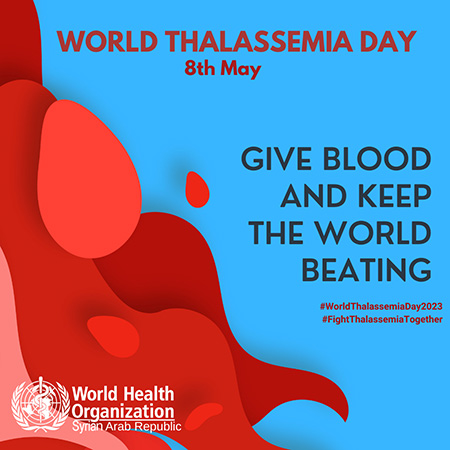 8 May, 2023 – On World Thalassemia Day 2023, WHO stands in solidarity with the thousands of thalassemia patients in Syria and their families.
8 May, 2023 – On World Thalassemia Day 2023, WHO stands in solidarity with the thousands of thalassemia patients in Syria and their families.